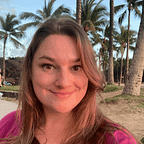Writing
Read Outside Your Genre
An unexpected way to strengthen your writing
Fellow blogger Tara Emmanuel wrote a piece about the unexpected benefits reading romance brought for an author of middle-grade fantasy.
It’s true— reading a completely different genre can strengthen your writing.
Here’s her article:
Not only did switching gears give her brain a break, but she was able to appreciate the difference in language. And just by becoming aware of language, a writer can improve their own words.
In fact, this is something I often recommend for author friends, as well as for my editing clients. Most people would think that to become a better writer in a specific genre you need to read everything in that genre.
You do. Successful authors know their genre’s timing, tropes, and used-up clichés to avoid (or twist).
But some of the best writing skills can be learned somewhere else entirely.
No matter what genre you’re writing, here are some places to find unexpected ways to boost your writing craft.
Thrillers
How do thrillers keep the reader flipping pages, their heart racing with anticipation? Pacing. It’s all in how short the sentences are, how much white space exists on each page, and how the dialogue moves the story forward.
If your story seems to sag in the middle, or you’ve been told the pacing is off, try picking up a few thrillers. Not only will you learn from how they tell the story, you’ll inherently discover tricks for transitioning between scenes and chapters in ways that keep the reader wanting more, without leaving them hanging in an annoying way.
Horror
When I picked up Silvia Moreno-Garcia’s Mexican Gothic released last year, it had been years since I had read anything in the horror genre. I was really missing out!
Horror writers are experts on establishing tone up front and building it througout the story. They also choose precise details in the setting to help the reader feel like they are in the story. A horror novel is an immersive experience, which is what I strive to give writers, no matter the genre.
If you struggle with adding enough setting without giving too much, read the first few pages of a horror novel and notice what details the author points out. Even if you’re writing something lighthearted, seeing this skill demonstrated at its best will help you pinpoint the necessary details and tone for your book right from the start.
Comedy
Even the most serious books tend to crack a wry joke or two — if only to show irony. Commercial fiction, regardless of genre, often has a lot of humor. And humor is notoriously difficult to write.
If your writing seems to take itself too seriously, and you really do want the reader to smile and relax (maybe so you can catch them unaware with a dark twist?), reading goofy comedies can help hone your eye for funny situations, clever plays on words, and what type of humor appeal might appeal to your audience.
Romance
As fellow blogger Tara discovered, romance has so much to teach us about writing. And why is that? Romance readers are fiercely loyal, and they know what they want. Which means romance authors can’t be lazy.
Thrillers are the natural choice for understanding how other authors handle tension and pacing, but pick up a romance and you might be surprised.
To please a romance reader, the author must be spot-on in character development and interpersonal tension. Lust without sexual tension? Impossible. The reader won’t connect.
Characters must be complex for readers to fall in love with them. And complexity leads to complications, misunderstandings, and tension. A romance novel is all about delaying the gratification of the story until the very end. And if that isn’t a lesson in pacing and tension, I don’t know what is.
Nonfiction
And by nonfiction I mean educational pieces, adventure memoir, persuasive self-help— anything.
Examine the language used and how it makes you feel. Is the vocabulary elevated or accessible? How are complex ideas communicated? How much emotion is in the piece, and how is it used to draw you in?
Skilled writers use words that sound like they are talking inside your head. That’s what readers want, even in their genre fiction.
I’ve found that one of the best ways to learn cadence and word choice is to listen to nonfiction audiobooks. It’s easy to spot when the writing works, and even easier to learn when it doesn’t.
Don’t be afraid to diversify your reading. For every book or two within your genre, reach for something completely different.
Afraid you’ll mar the personal brand you’ve carefully curated? That’s what an e-reader is for. Don’t be shy — pick up a contemporary romance, or even reach for a regency.
What’s your favorite genre outside your go-to? Has it helped with your writing? I’d love to hear how!
